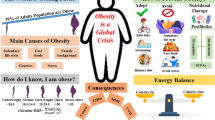Abstract
Over the past few decades, metabolic problems have become more and more common. There are no effective pharmacological treatments for the majority of metabolic disorders, other than the implementation of calorie limits along with increased physical activity. Probiotics have been shown to have a variety of positive benefits on metabolism in numerous scientific studies, yet some have questioned their efficacy and safety. A recently coined term, “postbiotics,” describes a variety of bioactive molecules, including nonviable/inactivated microbial cells, cell compounds, and any soluble products or metabolic byproducts resulting from microorganisms (probiotics), which either directly or indirectly mediate beneficial biological activity when given to consumers. A dynamic relationship between the environment, hereditary sensitivity, tolerance to insulin, and pathological function of adipose tissue is accepted, given the significant increase in research and clinical emphasis over the last two decades. The physiopathology of metabolic disorders like obesity is still not fully established and is still the subject of debate. Therefore, it is imperative to emphasize that many management techniques are used to treat this disease by advocating an integrated therapy approach that places a much stronger emphasis on natural products like postbiotics. Therefore, this book chapter is an attempt to clarify the pathophysiology and effectiveness of postbiotics in obesity.
Access this chapter
Tax calculation will be finalised at checkout
Purchases are for personal use only
Similar content being viewed by others
References
Amiri S, Rezazadeh-Bari M, Alizadeh-Khaledabad M, Rezaei-Mokarram R, Sowti-Khiabani M (2021) Fermentation optimization for co-production of postbiotics by Bifidobacterium lactis BB12 in cheese whey. Waste Biomass Valor 12:5869–5884
Zendeboodi F, Khorshidian N, Mortazavian AM, da Cruz AG (2020) Probiotic: conceptualization from a new approach. Curr Opin Food Sci 32:103–123
Wegh CAM, Geerlings SY, Knol J, Roeselers G, Belzer C (2019) Postbiotics and their potential applications in early life nutrition and beyond. Int J Mol Sci 20:4673
De Almada CN, Almada CN, Martinez RCR, Sant’Ana AS (2016) Paraprobiotics: evidences on their ability to modify biological responses, inactivation methods and perspectives on their application in foods. Trends Food Sci Technol 58:96–114
Hill C, Guarner F, Reid G, Gibson GR, Merenstein DJ, Pot B, Morelli L, Canani RB, Flint HJ, Salminen S et al (2014) The International Scientific Association for Probiotics and Prebiotics consensus statement on the scope and appropriate use of the term probiotic. Nat Rev Gastroenterol Hepatol 11:506–514
Daliri EB-M, Lee BH, Oh DH (2019) Safety of probiotics in health and disease. In: The role of functional food security in global health. Academic Press, Cambridge, pp 603–622
Bourebaba Y, Marycz K, Mularczyk M, Bourebaba L (2022) Postbiotics as potential new therapeutic agents for metabolic disorders management, 113138. Biomed Pharmacother 153. https://doi.org/10.1016/j.biopha.2022.113138. ISSN 0753-3322
Cassani RS, Fassini PG, Silvah JH, Lima CM, Marchini JS (2015) Impact of weight loss diet associated with flaxseed on inflammatory markers in men with cardiovascular risk factors: a clinical study. Nutr J 14:5. https://doi.org/10.1186/1475-2891-14-5. Retraction published Cassani RS, Fassini PG, Silvah JH, Lima CM, Marchini JS. Nutr J. 2016;15(1):59
Eslick S, Williams EJ, Berthon BS, Wright T, Karihaloo C, Gately M, Wood LG (2022) Weight loss and short-chain fatty acids reduce systemic inflammation in monocytes and adipose tissue macrophages from obese subjects. Nutrients 14(4):765. https://doi.org/10.3390/nu14040765
Acknowledgments
The authors are thankful to the Vellore Institute of Technology, Vellore, for providing the necessary facilities to carry out this research.
Author information
Authors and Affiliations
Corresponding author
Editor information
Editors and Affiliations
Rights and permissions
Copyright information
© 2024 The Author(s), under exclusive license to Springer Science+Business Media, LLC, part of Springer Nature
About this chapter
Cite this chapter
Haripriyaa, M., Suthindhiran, K. (2024). Anti-obesity Activity of Postbiotics. In: Dharumadurai, D. (eds) Postbiotics. Methods and Protocols in Food Science . Humana, New York, NY. https://doi.org/10.1007/978-1-0716-3421-9_35
Download citation
DOI: https://doi.org/10.1007/978-1-0716-3421-9_35
Published:
Publisher Name: Humana, New York, NY
Print ISBN: 978-1-0716-3420-2
Online ISBN: 978-1-0716-3421-9
eBook Packages: Springer Protocols




